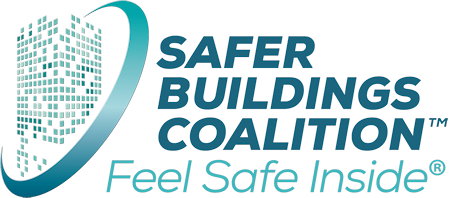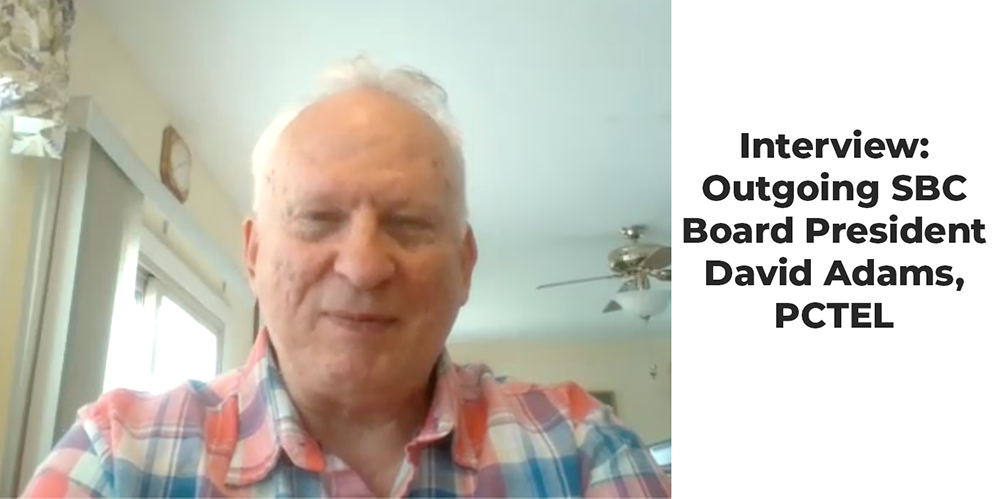"The SBC Is Always on the Move, Always Growing.”Outgoing SBC Board President David Adams on school safety, 9-1-1 Inside, Workforce Development and SBC’s growing footprint
Posted on September 23, 2024 David Adams, of PCTEL, has finished his term as Safer Buildings Coalition Board President. Ron Schachter, RF Solutions, now steps into the Board President role while David Adams will serve the next year as Immediate Past President. We talked to the outgoing Board President about the current and future state of the Coalition. SBC 3.0 School Safety
“If people are worried that something's going happen in their school, it undermines the purpose of education. So, keeping children safe and, being able to communicate in these unfortunate incidences is a matter of how safe you can keep people, how many lives you can save, how many people you can prevent being injured.” How can the Coalition help make our nation’s schools safer? David Adams points out that the SBC has a leadership role and that members can make it a priority to find ways to interact with local, city, county, state, and national government to raise awareness and focus on ways to improve school safety, such as pushing for implementation of Alyssa’s Law in every US State. “One of the ways [to improve school safety]] is good communication. Being able to communicate when something happens and for the first responders that come in to address situations. I think all of us have a role to play in talking, educating, brainstorming, coming up with ideas, maybe making sacrifices to give schools, people that work in schools for communications, everything they need to keep those buildings, safe from a communications point of view.” 9-1-1 Inside “The trend is clear,” Adams notes,” the vast majority of 9-1-1 calls come from a cell phone in the building and we've all experienced being in a building and having to go to the window [to find a signal] to make a call. If there's an emergency, you don't have that luxury. It is possible to deploy solutions and buildings that make it so you can dial 9-1-1, if not in every square inch [of every building]], then most of it.”
From an SBC standpoint, this means continuing to be a thought leader, offering education and pushing for solutions to determine to which extent each given building allows for emergency 9-1-1 calls to go out -- and identifying and implementing solutions where needed. SBC seminars, Adams notes, provide an opportunity for SBC leadership to offer insight and actionable solutions. “When you think about our typical seminars there are fire marshals that come in, there are radio system managers that come in. The radio system managers aren't necessarily responsible for cellular service in the building. Fire marshals tend to focus mostly on the radios that are carried by fire and police." "So, what can we do to get more people thinking: ‘Let's try to make this so that we're all accountable that we pick up responsibilities we maybe didn't have and at least do something?' For example: “If you're going to test a building [to ensure] that the local P25 network works, can you at least test to see if the cellular works so we'll know which buildings might have a problem and then start thinking about, what can we do to ensure that those problems are addressed and that 9-1-1 does work?” Adams notes that SBC will never be the entity that goes out and tests or fixes a building, but Coalition leadership can talk to those who do and encourage them to add analysis, measurements, and record keeping so that at least we know when there’s a problem -- and then start talking about what we can do to require the fixes that’d make 9-1-1 Inside reality. Workforce Development “Without the right education and, frankly, tutoring or monitoring or mentoring, you're not going to do it right. That's why, for instance, you look at the NICET certification. It says you must have knowledge, and you must have experience, and you must have someone who's supervising you and knows that you know how to do it."
"And those three things," he adds, "are the parts of workforce development, educating, and then hands-on doing it and supervising it. It is critical because if you put a system in and it's not done right, because the people aren't properly prepared, then you have a false sense of security. You think the building is safe. You think fire and police can talk. You think people can call 9-1-1, but they can't. That's worse than not even addressing the problem at all, because people think they're safe. Then they sit back and say, okay, I did it. I trust that system you put in to fix these problems. If it wasn't done right, then you're in more danger.” Proper workforce development, including education, training and mentoring, Adams states, is the solution to ensuring that this kind of work is well so that the right solutions are put in place, and that people really are safe. State of the Coalition
“I attended my first SBC conference about seven years ago. The evolution of the Coalition has been amazing - even in the last year, broadening out to other aspects of safety. When we start to think about cellular technologies being used by first responders. How is that looked at when you go to evaluate a building? When we start to focus on very important types of buildings like schools. A lot of that's happened within the last year.” Adams mentions SBC seminars and the curriculum presented by Chief Alan Perdue, et al as another example of how the SBC has evolved: That material, he notes, is updated regularly. “Overall, the message has been refined, improved, clarified, and I think much more effective for the people who attend and anybody who's been three years between attending events [tend to] come back." "The SBC is always on the move, always growing.” A Call-to-Action from the Outgoing Board President
We handed the bullhorn over to David Adams for a final call-to-action as he vacates the Board Presidency and enters his new role: “Participation in SBC has been extremely valuable to my personal development, professionally, to our company and our growth of our business in this area. I encourage everyone to consider participation and consider membership. SBC can't do what it is trying to do without members who are supporting financially and with time and ideas. I highly recommend to any companies that work anywhere in this space, that the cost is well worth the return with what SBC is able to accomplish in the industry.”
Share this Article |


